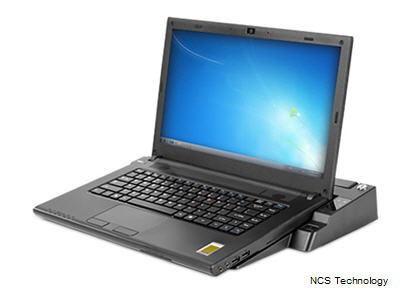NCS releases first mobile zero-client laptop
Company eyes military, intell community, as agencies move toward virtualization.
NCS Technologies has announced the launch of the Cirrus LT PCoIP zero-client laptop, a highly secure, compact laptop that represents the first mobile zero-client.
Zero-client computing, something the DOD and other government agencies have shown interest in as a part of their moves toward virtualized infrastructures, have been to date the realm of small desktop devices. They have no operating system, hard drive or local storage, but function as a virtual machine that connects a keyboard, monitor and mouse to a data center server. These virtual machines can enhance security by centralizing software — along with security patches and updates — on a server, reduce costs and improve energy efficiency.
By centralizing processing and eliminating the use of desktop PCs, IT managers can minimize possible access points for intruders and decrease vulnerabilities. If a device is lost, broken into or stolen, no information can be lost because the computer does not retain user data – the system does not have a local storage or hard drive. The devices also save money because only one software license is required, as compared to the multiple software licenses needed for a collection of typical desktop devices.
Additionally, centralized servers can replace up to several hundred desktops, reducing power and cooling needs, as well as saving space.

The Cirrus LT is the first fully functional zero-client laptop
The Cirrus LT uses AES-256 and NSA Suite B ciphers, the strongest security protocols available, according the NCS announcement. The laptop, expected to be available in the second quarter, is based on the Teradici high performance TERA2321 processor, which uses a PC over IP protocol to compress, encode and encrypt all functions on the server side and then transmit data as pixels across the IP network.
Military services such as the Navy have previously expressed interest in virtual desktop technology. A five-year program of the Naval Education and Training Command (NETC) intends to replace its desktop systems with virtual machines by 2015, and has plans to include mobility capabilities. Both the Army and Air Force also have published reference architectures for zero- and thin-client solutions, indicating a possible move to the technology that has been noticed by computer manufacturers.
“We have determined the key markets for zero-client laptops include all government agencies, including the military, the intelligence community and education,” said Brian Gentry, NCS vice president, engineering.
While zero-client systems offers distinct advantages in securing networks, the server can represent a single point of failure for clients. If a central server goes down, there is the possibility that all connected client devices will become unusable and that data will be lost. Client computers will still have to carefully maintain physical security and strong authentication credentials.
NEXT STORY: DARPA aims to turn computer chips into dust




